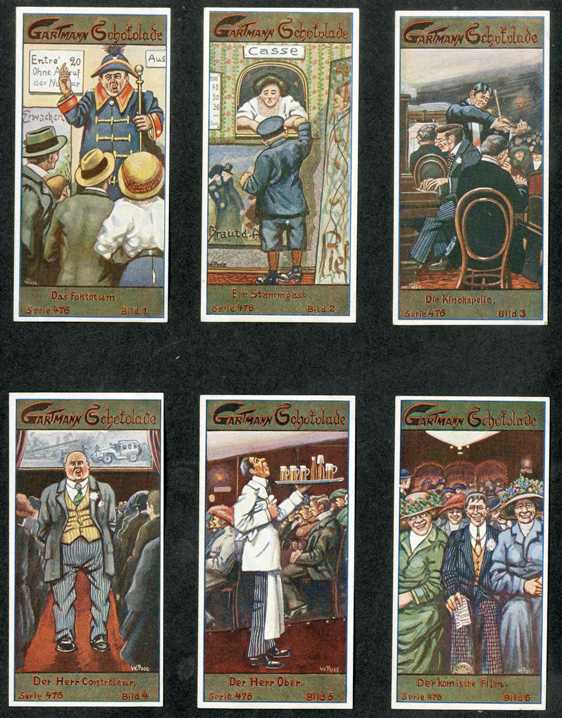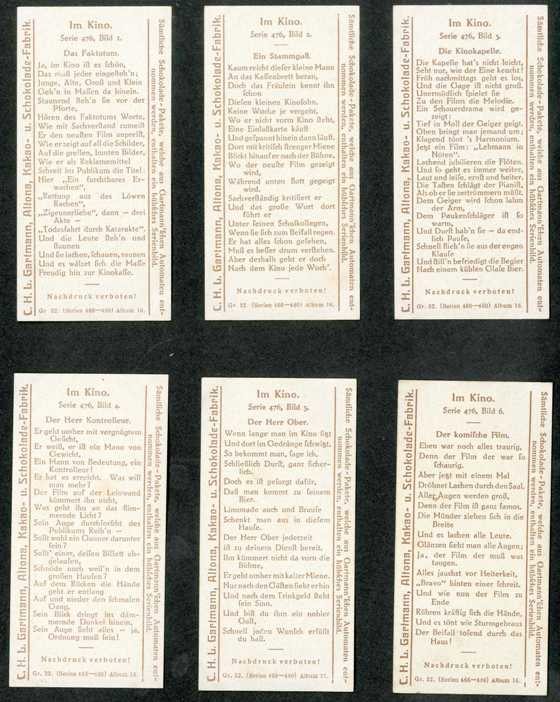Source: Lawrence Durrell, Prospero’s Cell: A Guide to the Landscape and Manners of the Island of Corfu (London: Faber, 2000 [orig. pub. 1945). pp. 44-52
Text: It is towards the hour of seven that, mellowed by the excellent wine of “The Partridge’, we cross the little cobbled square by the Church of the Saint, and seek our way through the alleys and fents of the Venetian town (the women touching hands as they talk on the balconies over our heads) to where the shadow-play is to be shown. In a little sunken garden by the Italian school the lights and the grumble of a crowd had already marked the place. A prodigious trade in ginger-beer and sweets is being carried on with the schoolchildren and the peasants who sit crammed into the small arena before the dazzling white screen upon which our hero is to appear. Two violins and a drum keep up a squalling sort of overture, punctuated by the giggles of the children and the pop of ginger beer bottles. (Important note. Ginger beer, first pop of ginger beer bottles. (Important note. Ginger beer, first imported by the British during their occupation of the Ionian Islands, has never lost its hold over the Corcyrean public. In places such as the Canoni tavern it may even be bought in those small stone bottles which we remember from our childhood, and which are quite as aesthetically beautiful as the ancient Greek lamp-bowls with which the museum is crammed.)
Our seats are right in front, where the orchestra can scrape away under our noses, and the sales of ginger beer increase noticeably owing to Ivan Zarian who persuades his father to buy us a bottle each. N. prefers nougat while Nimiec has found a paper-bag full of pea-nuts. Thus equipped we are prepared for the spectacle of Karaghiosis, whose Greek is sure to baffle us however much his antics amuse.
Presently the acetylene lamps on the hedge are extinguished, and the rows of eager faces are lit only by the light of the brilliant screen with its scarlet dado. The actors are taking up their dispositions, for now and then a shadow crosses the light, and the little peasant children cry out excitedly, hoping that it heralds the appearance of their hero. But the orchestra is still driving on with the awkward monotony of a squeaking shoe. I catch a glimpse of Father Nicholas at the end of a row, and seeing us smiling at him he feels called noon to make some little gesture which will put him, as it were, on the same plane as ourselves. He pushes aside the ginger-beer hawker, blows his nose loudly in a red handkerchief, and bawls to the tavern-keeper across the road in superior accents: ‘Hey there, Niko – a submarine for my grandson if you please.’ ‘A submarine’ is a charming fantasy; Nicholas’ little grandson would much rather have a ginger beer but he is too experienced and tactful a child to interrupt the old boy. He sits vaguely smiling while the waiter darts across to them from the tavern with the ‘submarine’ – which consists of a spoonful of white mastic in a glass of water. Nothing more or less. The procedure is simple. You eat the mastic and drink the water to take the sweetness out of your mouth. While the child is doing this, and while Father Nicholas is looking around him, pleased at having caused a little extra trouble, and at having been original, the orchestra gives a final squeal and dies out. Now expectancy reaches its maximum intensity, for the familiar noise of sticks being rattled together sounds from behind the screen. This is a sign for the play to begin.
The crowd draws a sharp breath of familiarity and pleasure as the crapulous figure of Hadjiavatis lurches on to the screen, cocking an enormous eyebrow and muttering a few introductory remarks. ‘It is Hadjiavatis,’ cry the small children in the front row with piercing excitement, while Father Nicholas remarks audibly to the row behind him: ‘It is the rogue Hadjiavatis.’ But even his gruffness cannot disguise the affection in his tones, for Hadjiavatis is beloved for his utter imbecility. He is to Karaghiosis what Watson is to Sherlock Holmes – his butt and ‘feed’ at the same time. At the appearance of Hadjiavatis the orchestra strikes up a little jig – his signature tune – completely drowning his monologue, whereupon he gives an indignant shake of his whole body, commands it to be silent, and recommences his groans and exclamations. Apparently everything is rather gloomy. Nothing is right with him. He is poor, he thickening of his speech indicates that he is now full of a sense of warmth and well-being.
From now on the play becomes a surrealist fantasia. Their rise to fame is meteoric and is accomplished by the unblushing cunning of the hero, with Hadjiavatis suffering here and there for his errors of judgement. Almost nothing is too fantastic to present, and I can see from the glowing face of Father Nicholas that what our surrealist friends might call ‘the triumph over causality’ is considerably older than Breton – and indeed is an integral part of all peasant art. The succession of figures on the dazzling screen glow with a kind of brittle life of their own; the voices (whose volume and pitch betray their human origin) crackle and spark with a kind of suppressed hysteria. All Greece is in this scene; the market-place, the row of Turkish figures, the wonderful power and elasticity of thought and verbal felicity; the tenderness and vulgarity of Karaghiosis; and all indicated with so little of the landscape to which I had hoped to be a guide. Karaghiosis, whose humour is cast in a townsman’s mould, is still surrounded by memories of the day when he and his kind were mad, violent clansmen in the hills around Olympus: or scattered colonies across the Black Sea, still tenaciously holding to an optative mood and a pronunciation which Piraeus has forgotten or only remembers as a joke. On this little dazzling screen you have the whole laic mystery of Greece which has been so long dormant in the mountains and islands – in the groves and valleys of the archipelago. You have the spirit and the unconquerable adaptability of the Greek who has penetrated with the leaven of his mercuric irony and humour into every quarter of the globe.
By now we have met a number of characters who are to become familiar in the immortal Karaghiosis cycle of plays. There is Gnio-Gnio, a lunatic figure in a top hat and cutaway coat, whose singing Zante accent is a joy to listen to. There are the Salonika Jews, each tiny and clad in a shapeless sack-like robe, out of which they speak shrill and clever, hands firmly folded in front of them. There is even an unusual figure called ‘The Lord’ who is dressed in what Father Nicholas must imagine to be the conventional English fashion – in a tail-coat, buttonhole, spats, and a topper. There is also the appalling Stavrakas of Piraeus whose vanity and vulgarity make him justly the object of little children’s derision. There is the Grand Vizier, a most sympathetic figure, and of imposing size – not to mention the Cadi, who orders beatings with a cool impersonal air of detachment.
The drama reaches its peak with a faked election, in which Karaghiosis, in order to win, manages to resurrect all the corpses in the local cemeteries, who pass in a grisly single-file across the stage to the polling booth to vote for the hero.
And now, with abrupt suddenness Karaghiosis appears to recite a short epilogue and while the applause is still deafening us, the screen goes out and we are in darkness. The orchestra has long since packed up, and we stumble yawning from the garden in the darkness, pressed all about by the eager bodies of the children …
Comments: Lawrence Durrell (1912-1990) was a British novelist and travel writer. He lived with his family on the Greek island of Corfu between 1934 and 1941, when the island fell to Nazi Germany and he fled to Egypt. Prospero’s Cell is an artfully composed memoir of his time on Corfu. Karaghiosis, or Karagiozis, is a figure from Greek folk-lore who features in both Turkish and Greek shadow-puppet theatre. My thanks to Artemis Willis for bringing this account to my attention.

